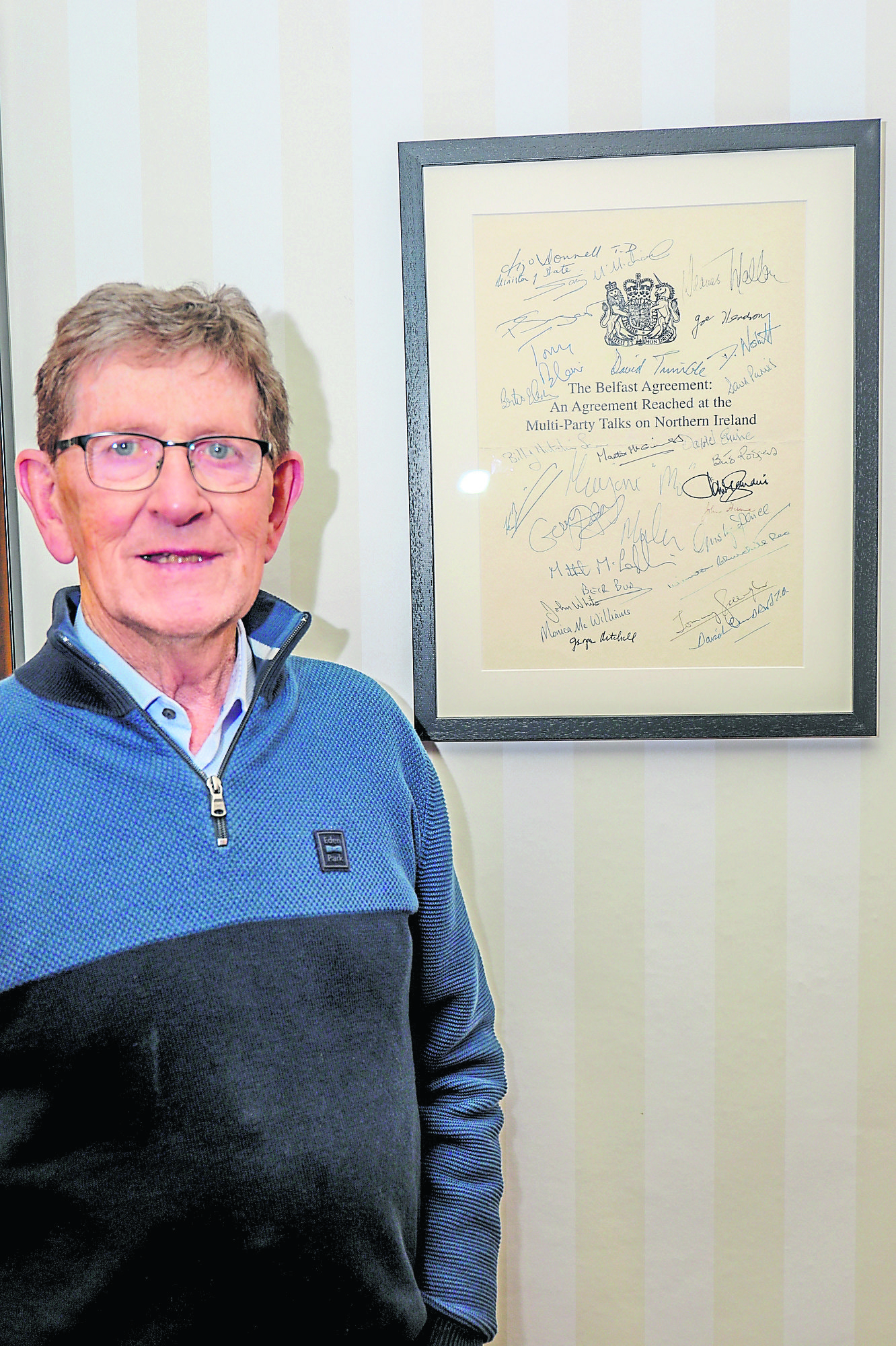ON THE 25th anniversary of its signing, the Fermanagh man who was at the heart of the talks leading to the Good Friday Agreement has called for today’s political leaders to follow the example of those who worked so hard to achieve peace.
Having been appointed a talks delegate by John Hume in the late 1980s, retired SDLP MLA Tommy Gallagher was involved in various levels of background peace negotiations for many years which brought together many of the key players in the conflict and local society.
Speaking to the Herald a quarter of a century on, the Belleek man recalled how despite those many years of work, no one involved had ever been complacent that they would ever reach that historic moment on April 10th, 1998.
Instead, they went above and beyond to achieve consensus, spurred on by the will of the people and with the aim of creating a brighter future for everyone.
“Our people weren’t just going along taking anything for granted, we were well aware of all the difficulties, but at the same time we travelled hopefully,” said Mr Gallagher, noting people back home in Fermanagh had all been supportive throughout the process.
“There was no doubt that people were completely fed up with the violence and the great, great majority of people wanted a better way forward,” he said.
“There was that mood for change, and any encouraging news from talks and so on would, when I was out and about there were always people coming over and just saying they were delighted to see it.”
While talks and meetings had been taken place for years beforehand, Mr Gallagher noted it wasn’t until after the ceasefires of 1996 that things began to really progress.
Then, in the months and weeks leading up to April 1998, Mr Gallagher recalled how US envoy George Mitchell had “decided he had to focus minds” and set a deadline date for an agreement.
“That definitely brought things into line and the pace increased then, and it was really around the clock in the last couple of weeks for those who were involved,” he recalled.
The weeks that followed were a long, hard slog for all involved as they edged ever closer to making history, with Mr Gallagher arriving from Fermanagh each morning, and not leaving Stormont until well after midnight.
“I remember getting towards the very end, on the last week, as one of the people that had to travel a considerable distance the government decided to provide overnight hotel accommodation for some of us,” he said. “That was one sign that things had stepped up considerably.
“There were more party people coming in, too, and you would see them around the corridors coming and going. There was definitely a very big step change in relation to the way business was being conducted.”
Mr Gallagher recalled some of the key players involved in the Castle Buildings talks during those fateful weeks, from his own party leaders of John Hume and Seamus Mallon, to David Andrews from the Irish government, to Gerry Adams and Martin McGuinness, to David Trimble, Ken Maginnis, and Reg Empy, as well as Mr Mitchell himself.
However, there was one individual who he had particularly fond memories of 25 years on – the late Mo Mowlam.
“She was just so unpredictable in ways,” he recalled. “Mo would come into one of our meetings and just sit down and chat. Looking back it was very deliberate, she was just trying to figure out where we were at. We knew then she would be away off then to chat to somebody else.”
Noting some may recall Ms Mowlam as a colourful character, Mr Gallagher continued, “It’s the other side of her I remember most, a very caring and considerate individual.
“She could work all her way around all of the rooms in Castle Buildings at that time and seemed to have good relationships with them all.”
One of the key aspects to the success of the Agreement was Mr Hume’s insistence it be put out to referendum on both sides of the border, giving the people their say, said Mr Gallagher. He said people’s desire for change and for peace remained as strong today as it did 25 years ago, despite the current impasse at Stormont.
“That was the general mood at the time, and that hasn’t changed,” he said, calling for leadership from our current political representatives.
“Quite clearly, we’ve had these difficulties. My message remains strongly that violence is counterproductive. It’s so obvious, and the people who engage in violence must realise, the losers are their own communities that they live in.”









